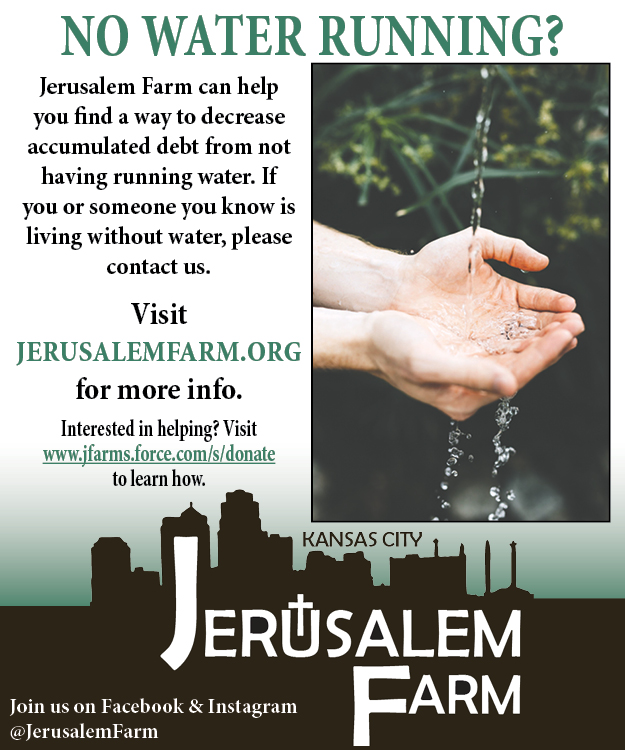
Misunderstanding about utilities, specifically water, abounds. Time and time again, we meet people who are forced to live without running water because they can’t pay off a debt that keeps rising. Unlike Spire (natural gas) and Evergy (electricity), KC Water (water) continues to charge for access to the water system even after the connection has been shut off due to delinquent payments.
Several families voluntarily shut their water off during a low period in their life; their debt was less than $400. Years later, when their situation improved and were ready to tackle some minor home repairs, they needed to have the water turned back on to access city programs. What they found is that the bill increased to several thousands of dollars. The new barrier for agencies, such as Jerusalem Farm, is finding a way to decrease the accumulated debt from nearly a decade of not having running water.
Some people may have thought that collecting, hauling and storing water was a phenomenon limited to remote places around the world and the occasional repairs on our city infrastructure, but it’s here. It is a reality for many homeowners and neighbors right in our own cities. People that we know are relying on relatives to supply gallons of drinking and cooking water; to provide showers and washing machines.
Others collect rainwater off of their roof by setting pails under the downspout and purchase gallons of spring water from the grocery store. Even if adversity is the mother of invention, our neighbors should not have to resort to these measures. Some might think that a person on a fixed income does not need to own a home for which they are only selectively able to pay utilities, but shifting to public or affordable housing does not erase their utility debt.
What is the best way for helping agencies to assist? The problem is multi-faceted. Community development and relief funds come with restrictions and stipulations to protect both the agencies and the donors. The funding can also depend on current events and the way that public funds are allocated.
Currently, the city has COVID relief money to distribute but debt that accrued prior to the pandemic is excluded. Not only does the funding come with limitations, it’s divided up among 45 organizations serving Kansas City, Missouri alone. So many agencies, so much money and yet we still have the problem of aging and increasing debt.
Why can’t the water company cap the debt at the time of shut off? Why can’t provide a program with a pathway back? Why can’t they provide a subsidy program similar to Evergy’s partnership with The Salvation Army on the Electronic Relief Pilot Program aiming to prevent shut-offs before they happen?
There must be more creative solutions begging to be researched and modeled after other cities.
The lack of running water in a household not only hurts the homeowner or tenant, the utility company’s bottom line, but it could also contribute to deeper poverty and houselessness. Houses without running water may be considered unfit for habitation, causing it to be handed over to the city for resale. The individuals who started out with an inability to pay and who were entrenched in deeper and deeper debt may then be displaced, carrying that debt burden along with them.
If you or someone you know is living without water. Please contact us at Jerusalem Farm.

Learn more about Jerusalem Farm at www.jerusalemfarm.org or by following their organization on Facebook – @JerusalemFarm .
For questions call (816) 421-1855.


















